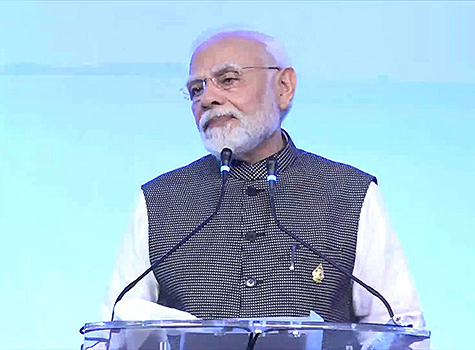By Mo Vidwans

I am, of course, talking about getting tax preparation started if you haven’t started that already. By now you should have all your 1099s, W2s, SSAs and many such statements that we are supposed to get by the end of January but generally they are late by a few weeks. The key thing to know is that even if you do not get your statements as mentioned above, it does not get you off the hook. You still need to declare all the income and other information that you would have gotten in those documents. IRS has taken a firm stand on this issue.
Generally, if that really happens, the best thing to do is to call that organization and get a copy or a substitute statement and most of these organizations are more than happy to oblige. If that avenue is not available for whatever reason, then you do your own calculations from the pay stubs, quarterly statements and/or other documents you may have over the course of the past 12 months and create your own scenario and use that number. It is best to show that you were aware of what needed to be shown and you have done your best to reconstruct it. Error of admission is much better than the error of omission.
 We are sort of going back to the level of tax preparation like it was pre-Covid. Many special conditions were set in the past two years and they are not in effect any longer. So instead of regurgitating some of the same issues again I am going into a question/answer scenario and try to answer some of the atypical issues that you may be facing.
We are sort of going back to the level of tax preparation like it was pre-Covid. Many special conditions were set in the past two years and they are not in effect any longer. So instead of regurgitating some of the same issues again I am going into a question/answer scenario and try to answer some of the atypical issues that you may be facing.
I plan to lease an electric vehicle; will I get a tax credit? Unfortunately, No. The newly named clean vehicle credit of up to $7,500 applies to EVs that are acquired by the taxpayer, meaning that the title to the vehicle changes hands. But all may not be lost. The tax credit goes to the manufacturer or the lessee of the leased EVs, so it makes sense to ask the dealer to reduce the price of the vehicle by all or part of the dealer’s credit amount.
Does the wash-sale rule apply between spouses? Yes. As you know, the wash-sale rule prohibits you from taking a capital loss write-off on the sale of securities if you purchase substantially identical security up to 30 days before or after that sale. If that is the case, then any disallowed loss is then added to the tax basis of the replacement securities. You also have a wash sale if you sell securities, and your spouse buys substantially identical securities within the 60-day period. Also, it should be noted that be very clear about the rules of what is a substantial identical security and what is not; if not followed properly it can get you in trouble.
Can I deduct charitable contributions that I made in 2022 if I don’t itemize? No. The 2020 and 2021 easing of charitable gifts of cash (only) has expired. Beginning with 2022, non-itemizers can no longer write-off on page 1 of 1040 up to $600 in cash donations to charity. This begs to explore how to use the high limits of itemized deductions to our advantage. Many have used it by bundling the medical expenses, mortgage interest, donations, property taxes etc. in one year to exceed the limit and then the next year take the standard deduction. To get over the high limit for itemized deductions this is a good strategy especially if you have many medical expenses which will take you over the 7.5 percent of your AGI. Such things need to be planned at least a year ahead of time, if not longer, because you must manage your mortgage and property taxes accordingly. Something to think about if you are keen on using the itemized deductions.
Virtual Currency: all 1040 and 1040SR filers must answer a question on virtual currency. On 2021 returns, taxpayers had to tell whether they received, sold, exchanged or otherwise disposed of any financial interest in any virtual currency. That question is being expanded for 2022 returns to include digital assets and the question is broader. Taxpayers must answer whether, at any time during 2022, they received, sold, exchanged, sold or otherwise disposed of a digital asset or a financial interest in a digital asset; that would include non-fungible tokens (NFTs).
Interest rates rising on overdue taxes: the revenue service will charge 7 percent now for individuals on back due taxes. If you are going to ask for extension for filing, you still need to pay estimated taxes around the due date of April 18 for this year. It is best to over-estimate your tax dues and pay little more on April 18 and get a refund on October 15. You will get charged for interest for those six months for the taxes due if taxes are owed in October.
QCDs from RMDs: people 70.5 and older can transfer up to $100,000 each year directly from their IRA to charity; these are not taxed and not added to their AGI either. They come out of their RMD that they must take each year from their retirement accounts. Of course, they can’t deduct the donation on their itemized deductions on schedule A either. Each spouse can give this full amount from their respective RMDs. But here is the clincher. If one spouse is short in his/her account to make up the full $100,000 then the other spouse cannot make up for it. Each account is considered separately.
Mo Vidwans is an independent, board certified financial planner. For details visit, vidwansfinancial.com, call 984-888-0355 or write to: [email protected]



